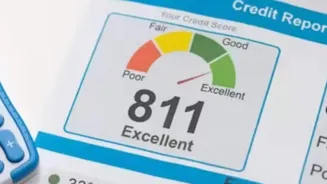Every closed loan leaves a mark on your credit report, and the manner of repayment determines whether that mark strengthens or weakens your financial standing. When repaying a loan, especially under financial strain,
borrowers are often faced with two options: settle the loan or repay it in full. While settlement can bring temporary relief, it has its implication on one’s credit score and long-term financial health.
Before choosing between settlement and full repayment, it is important to understand what each option involves and how it can affect your financial future. Full repayment means clearing the loan as per the original agreement by paying all outstanding EMIs, interest, and principal. In contrast, a settlement involves negotiating with the lender to pay a lower amount than what is owed, usually due to financial distress. Once settled, the lender closes the account but also reports it as “settled” to the credit bureau.
Credit Score Implications
The impact of these actions on your credit score is significant. A loan settlement, can have a lasting impact on your credit score and how future lenders assess your credit profile. Lenders consider a “settled” status as an indication that the borrower did not fulfil the original repayment terms. This can lower your credit score, depending on the credit profile and your overall credit history.
Moreover, even though the loan account will be closed, a settlement flag stays on your credit report. Due to this, accessing new credit—whether for a home loan, car loan, or even a credit card—may become challenging. Interest rates, if approved, are often significantly higher, and lenders may ask for additional documentation or collateral.
In contrast, full repayment has a positive effect on your credit profile. It shows a consistent repayment track record and strengthens your credibility with lenders. A closed account with a clean payment history can help improve your credit score and overall credit profile. Over time, this can increase your eligibility for larger loans, better terms, and financial products with more favourable conditions.
Making the Right Choice
While settlement might seem like a viable option during financial hardship, it should be seen as a measure of last resort. Before considering it, borrowers should explore other possibilities and seek financial counselling before opting for settlement.
Beyond the numbers, full repayment builds a pattern of financial discipline and stability. It reflects your ability to manage debt responsibly and plan ahead, both of which are critical for long-term financial stability.
In a credit-driven economy, a consistent track record of reliability can open far more doors than temporary relief ever will. Whether you are navigating a financial setback or preparing for future goals, aligning your decisions with long-term outcomes is what truly defines a responsible borrower.



















